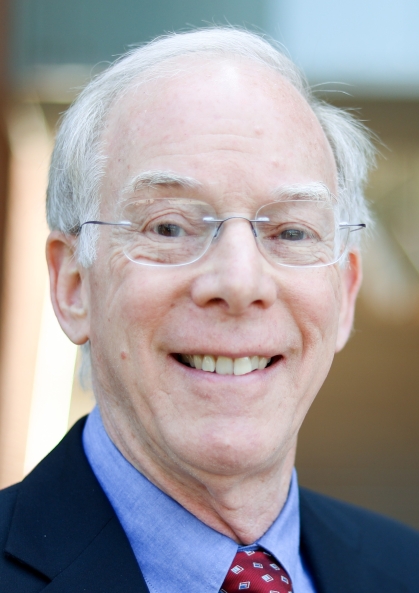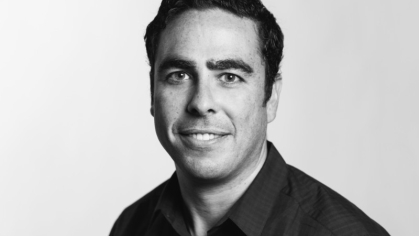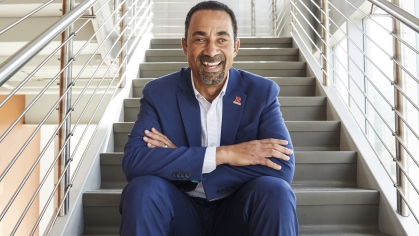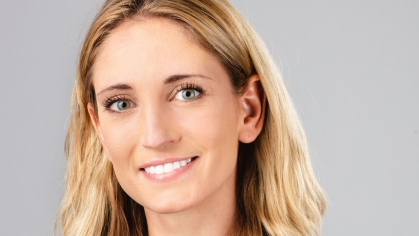“Materials science and engineering is interdisciplinary – and that to me is everything. You can move freely among polymers, metals, ceramics, and semiconductors and you are always at the forefront of technology.” – Bruce Dunn

Bruce Dunn earned his Rutgers Engineering BS in ceramics science before receiving master’s and doctoral degrees from UCLA. After serving as a staff scientist for General Electric R&D labs, he joined the faculty of UCLA, where he is currently a distinguished professor of materials science and engineering and holds the Nippon Sheet Glass endowed professorship. Widely recognized for his research related to the synthesis of inorganic and hybrid materials and the characterization of their electrical, optical biological, and electrochemical properties, his many honors include awards from the Department of Energy for outstanding research in materials science.
Congratulations on your Medal of Excellence Distinguished Achievement in Research Award. What does this award mean to you?
It is really recognition that I have had an impact in my field and with those I teach.
What attracted you to materials science and engineering?
As an undergraduate, I was a ceramics science major before there was a materials science major. At the time, late 1960s, 1970s, there were nascent interesting applications, such as space and electronics. Later, the field became the forefront of important research and has had an incredible impact on our lives. Ceramics are used in electronics all the time – smart phone components for instance, make wide use of ceramics.
What do you most enjoy about the field?
The ability to create new materials. You can have an idea about what you want to do and where and how you want to apply it. The field is creative and interdisciplinary. I say to my students that you have one foot in fundamental sciences, another in technology. You are perfectly situated between fundamental sciences and technology.
What is your current research focus?
For the last 20 years, we have been focused on energy storage – particularly batteries. What we have been doing is developing new materials to improve lithium-ion batteries . Our current focus is on developing sodium-ion batteries. The raw materials for sodium are ten times cheaper and far more plentiful. But we also have to develop technology and other materials to go with it. For these, we are working on using earth abundant materials. Iron is a good example – as there are vast resources of it in the US.
You hold 24 patents and have published more than 300 papers. Which of your accomplishments are you most proud of?
I am proud of my most recent patent that speeds up battery charging times.
I am also proud that very early on we recognized the importance of batteries for the grid, which enables energy storage for solar and wind energy. Nearly 15 years ago, my colleagues and I wrote a paper that reviewed and defined the field.
What do you see as the future for energy storage materials?
Its steady growth. The US has committed to becoming carbon-free by limiting fossil fuels and increasing electricity in transportation and developing solar and wind energy. The only way to get there is with batteries that really store solar and wind energy effectively.
What do you most enjoy about teaching?
The interaction with the students. That is the best part. You encourage them, and want them to learn to create. You also want to excite their imaginations.
I’ve kept in contact with many of my PhD students over the years and have seen their careers blossom. They know that if they have an issue or problem at work, they can call me. I do not have an agenda, so they know they will get advice from me that they do not necessarily get from work.
What do you most value about your Rutgers Engineering education?
Even then, I appreciated the breadth. The program was not as intense as it is these days, so I had a lot of electives, and the curriculum was flexible. I took art, music, economics, a course in Shakespeare, and a great course in logic. I enjoyed being able to do that. I had plenty of writing and interpretation, which is so important. You have to be able to write, to take an idea and develop it. And the only way to know how to write is by taking liberal arts courses.
What are your fondest memories from your student days?
When I went to Rutgers it was a small school, men only. The size was rather nice, as you could meet new people not in your major. There were really great campus events like concerts from Motown headliners as well as classical icons. The gym for basketball was small and noisy. Saturday football games were also a big part of campus life.
What do you do for fun now?
We subscribe to the LA Opera and have been regular opera goers for at least 30 years.
I travel a lot, mainly with work, but try to keep a couple of days for sightseeing. Just recently, I visited Cyprus and was able to tour historic sites with a colleague from Cyprus. I was able to combine materials science with archaeology on this trip and it was fantastic.
What advice do you have for today’s engineering students?
Find a discipline that you really enjoy – do not do it because your uncle did, or parents said to. If you can, anticipate an area that is going to grow. One attribute about engineering disciplines is that they are almost all different today than they were 25 years ago. It is hard to anticipate the next direction; they all change – and you have to be ready for that.
Why might you encourage students to major in materials science?
It is interdisciplinary – and that to me is everything. You can move freely among polymers, metals, ceramics, and semiconductors, and you are always at the forefront of technology. Technology does not develop unless you have new materials.
What do you like most about LA? What do you like the least?
It is a vibrant, creative city on a lot of different levels.
But there is no autumn. Autumn in the northeast is glorious.
Even though you were just in Cyprus, if you could go on a vacation tomorrow, where would you go?
Since Covid, there are a lot of friends with whom I have not caught up. I would like to spend more time with them, including my friends from Rutgers, with whom I still keep up.


